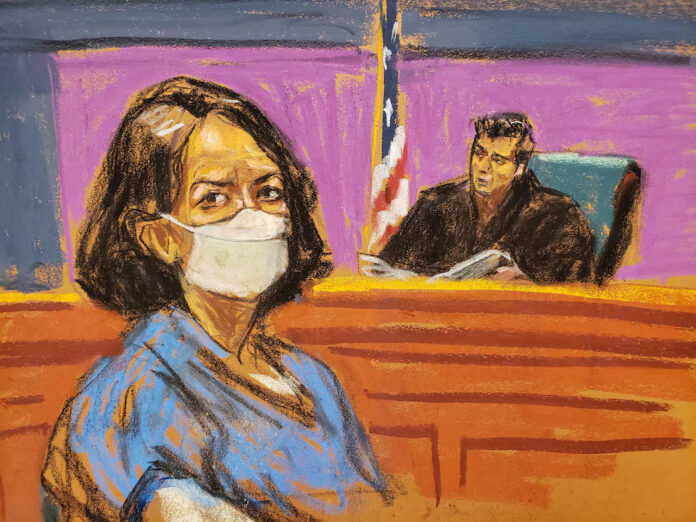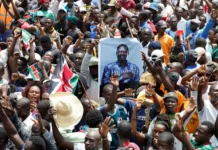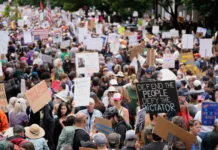
In a dramatic late-night legal maneuver, the Trump administration has formally requested the unsealing of grand jury testimony from the sex trafficking cases of Jeffrey Epstein and Ghislaine Maxwell. The move, announced through a pair of court filings on Tuesday night, comes as President Donald Trump faces growing scrutiny over his administration’s handling of the controversial and long-running saga.
The Justice Department urged U.S. District Judges Richard Berman and Paul Engelmayer of Manhattan to authorize the release of the confidential grand jury transcripts, citing what prosecutors called “abundant public interest” in the cases and the ongoing scrutiny over federal law enforcement’s handling of Epstein and Maxwell.
The initial request was made on July 18, but the judges demanded more detailed legal justifications before proceeding. The renewed push follows a recent wave of public and political pressure on Trump, particularly from his conservative base, who believe Epstein’s ties to high-profile figures remain buried by a broader government cover-up.
In their filings, federal prosecutors acknowledged the unusual nature of the request, noting that grand jury proceedings are typically protected by strict secrecy laws. However, they argued that the exceptional public interest in the Epstein case, which has fueled conspiracy theories for years, justifies making at least some of the material public.
President Trump confirmed earlier this month that he had directed Attorney General Pam Bondi to pursue the release of the grand jury transcripts. This came shortly after the Justice Department officially concluded that Epstein died by suicide while in jail in 2019, and that investigators found no “incriminating client list” among Epstein’s records, a statement that triggered backlash from many of Trump’s supporters who continue to question the official narrative.
“There’s a lot the American people deserve to know,” Trump said in a recent interview. “This administration is committed to transparency, and I’ve asked the Justice Department to go as far as the law allows in releasing those records.”
Despite the administration’s efforts, significant legal barriers remain. Grand jury records are protected under strict federal rules, with only narrow exceptions allowing their disclosure. Even if Judges Berman or Engelmayer approve the release, legal experts caution that the transcripts may not contain sensational revelations, as much of the evidence presented at Maxwell’s 2021 trial, including testimony from alleged victims, Epstein’s associates, and law enforcement officers, was already public.
Moreover, some of the materials the government holds may never have been presented to a grand jury, and therefore would not be included in the transcripts now under review.
The Trump administration has already faced legal setbacks in its efforts to disclose similar records. On July 23, U.S. District Judge Robin Rosenberg in Florida denied a motion to unseal grand jury materials from earlier state investigations into Epstein dating back to 2005 and 2007. Judge Rosenberg ruled that the request did not meet the narrow legal exceptions for releasing such sensitive material.
Epstein pleaded guilty in 2008 to a Florida state charge of soliciting prostitution, including from a minor, and received a controversial 13-month sentence as part of a now-infamous plea deal that allowed him to avoid federal prosecution at the time.
Ghislaine Maxwell, Epstein’s longtime associate and former girlfriend, was convicted in 2021 on federal sex trafficking charges and is currently serving a 20-year sentence in a Florida federal prison. She has since appealed her conviction and recently petitioned the U.S. Supreme Court for review.
In an unexpected development last week, Deputy U.S. Attorney General Todd Blanche, who previously served as Trump’s personal lawyer, held a two-day meeting with Maxwell. The purpose of the meeting has not been fully disclosed, but sources say it was aimed at determining whether Maxwell possesses information that could implicate other individuals in criminal activity.
Maxwell’s attorney, David Markus, and Blanche have both declined to provide further details, though their meeting has sparked speculation that the administration may be considering broader investigations into figures associated with Epstein.
As judges weigh the administration’s requests, the nation watches with anticipation. Whether the transcripts will be unsealed, and whether they contain new information, remains uncertain. But the Trump administration’s bold legal move signals a clear shift toward increased transparency in a case that continues to captivate, disturb, and divide public opinion.
For now, the courts will determine whether the law permits the release of records that many hope, or fear, could shed new light on one of the most controversial criminal cases in modern American history.
Written By Rodney Mbua


















